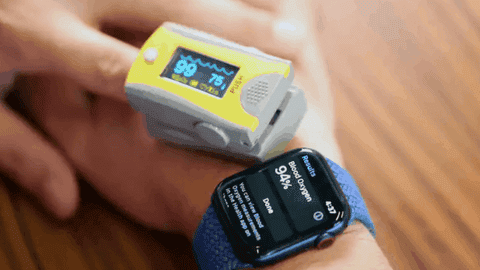The technology industry is so complex that lawsuits are even more common than innovations. Large companies have to deal with more of these lawsuits because of their scope of business. Some of these court cases are from the competition while others are from users. Apple is one company that faces a good number of lawsuits annually. According to recent reports, it will have to face another lawsuit because of the Apple Watch heart rate monitoring feature.
Apple Watch comes with an optical heart rate sensor that supports heart rate monitoring. The feature also provides early warning services to users. The latest sixth-generation watches also support blood oxygen detection. According to reports, a US company AliveCor recently filed a lawsuit against Apple, claiming that its heart rate monitoring function is not open to third-party apps. The company argues that as a result, users can not use better algorithms for monitoring.
AliveCor said that Apple’s move prevented third-party heart rate analysis applications from being more accurate than Apple’s built-in algorithms. This company launched the KardiaBand band, which can not only monitor the heart rate but also generate an electrocardiogram. The company had protested against Apple earlier this year and contacted the U.S. International Trade Commission, claiming that Apple’s heart rate monitoring algorithm infringed the company’s patents.
This Apple Watch case is one of many cases that Apple will have to deal with. Honestly, many small companies use these court cases to get money from the bigger companies. In many cases, it’s not really about care for the users or better output. It is mostly about “what we can get from big companies” for many small technology companies. However, the court will have to review the case and determine if AliveCor actually has a case.
Apple loses a lawsuit in Brazil over a charger
Recently, Procon-SP, Brazil’s customer protective department fined Apple R$ 10 million (about $1.9 million). The company has lost another lawsuit in the South American country for selling its iPhones without a charger in the box. Mariana Morales Oliveira, from Sao Paulo, obtained in court the right to receive the accessory for her iPhone 12.
According to Mariana’s lawyer, Rafael Quaresma, Apple does not have a genuine reason for not putting the charger in the box. The company claims that it is removing the charger in the box to protect the environment. However, it is still manufacturing the chargers separately and users have to pay more for the chargers. How is Apple now protecting the environment? It appears as though Apple is only making more money and nothing more.
Follow Gizchina.com on Google News for news and updates in the technology sector.
